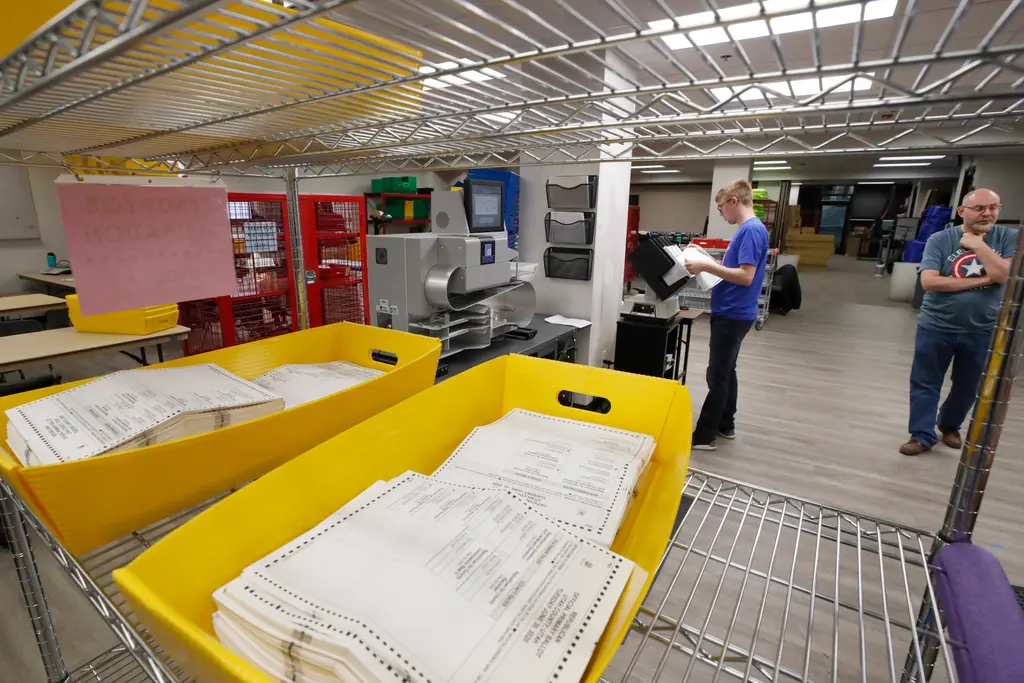Recent arrivals of Haitian migrants underscores urgency for Congress to act

Recently released numbers from U.S. Customs and Border Protection found that over 45,000 Haitians had been arrested along the border for fiscal year 2021, an over 40,000 increase from previous years. This news follows the viral photos and footage released several months earlier, where mounted Border Patrol were using their reins to maintain distance between themselves and the Haitian migrant groups they were monitoring. Although these events are still being investigated, it appears no migrant was physically harmed.
But regardless of the details, these images only underscore our country’s continued failure to restore order, comion, and common sense to our immigration system. For months, Border Patrol agents had been working overtime to accommodate the increased flows of arriving Haitians. With staff stretched thin, the local union representing Del Rio agents ed regional management in June for additional resources to process migrants. Nothing ever materialized from those requests.
This story is just one of many that underscores the urgency for Congress to bring ability, order, and due process to the way we handle asylum seekers. Lawmakers must act quickly and work across the aisle.
This can start by ing the Bipartisan Border Solutions Act, which has received from a variety of law enforcement groups, including the National Border Patrol Council. The bill would authorize the hiring of hundreds of additional Border Patrol agents and other field officers. A recent DHS report found that surges in asylum claims have forced the Border Patrol to divert 40-60 percent of its staff to look after migrants, suggesting major gaps in staffing.
In addition to increased security, the bill would expedite asylum decisions — which take an average of three years. One way the bill would cut through this backlog is by hiring more asylum officers and immigration judges.
Más sobre Opinion
Additionally, the bill would require immigration courts to decide new cases first during future asylum surges. This improves incentives by ensuring that asylum cases found to have merit are quickly accepted while cases that lack merit are quickly rejected. This deters migrants from filing asylum claims for the sole purpose of getting to stay in the U.S. while their cases are pending.
In addition to reforming our asylum system and providing adequate security staffing, the U.S. must also stay informed of how migrants perceive U.S. immigration policy. One underreported aspect of this recent surge was the communications failure preceding it. In May, President Joe Biden expanded deportation relief to Haitians already living in the U.S. This was coupled with a promise to remove newly arriving Haitians, who weren’t eligible for this relief.
While these details were widely broadcast in Haiti, the communications campaign failed to reach the thousands of Haitians in Chile, Brazil, and elsewhere in South America. Many of these Haitians were deceived by misinformation spread by smugglers, and mistakenly believed that their arrival in the U.S. would grant them protection. To help mitigate this problem in the future, the Border Surge Response Resilience Act would require regular DHS reports about tactics and propaganda deployed by human smugglers and how U.S. immigration policy is being interpreted.
These reforms would go a long way toward rectifying the security flaws in our immigration system. Their value could be even better leveraged if they’re coupled with solutions that create orderly and accessible legal immigration channels. While asylum is an option for people facing persecution, those who are fleeing famine, natural disaster, and other atrocities don’t qualify.
For our asylum reform and border security investments to be fully leveraged, Congress must also increase legal avenues that provide economic migrants with an orderly process to wait in line. Research shows that increasing visa issions for Mexicans by 1 percent reduced Mexican apprehensions by an in even greater amount.
Even when migrants don’t immediately receive a visa, the knowledge that they can earn one in the future discourages them from attempting to cross illegally. Currently, Haitian nationals aren’t eligible for certain types of work visas, and for every 100 Haitians apprehended in fiscal year 2021, just two were itted on a temporary or permanent visa.
Daniel Garza is the President of The LIBRE Initiative.



